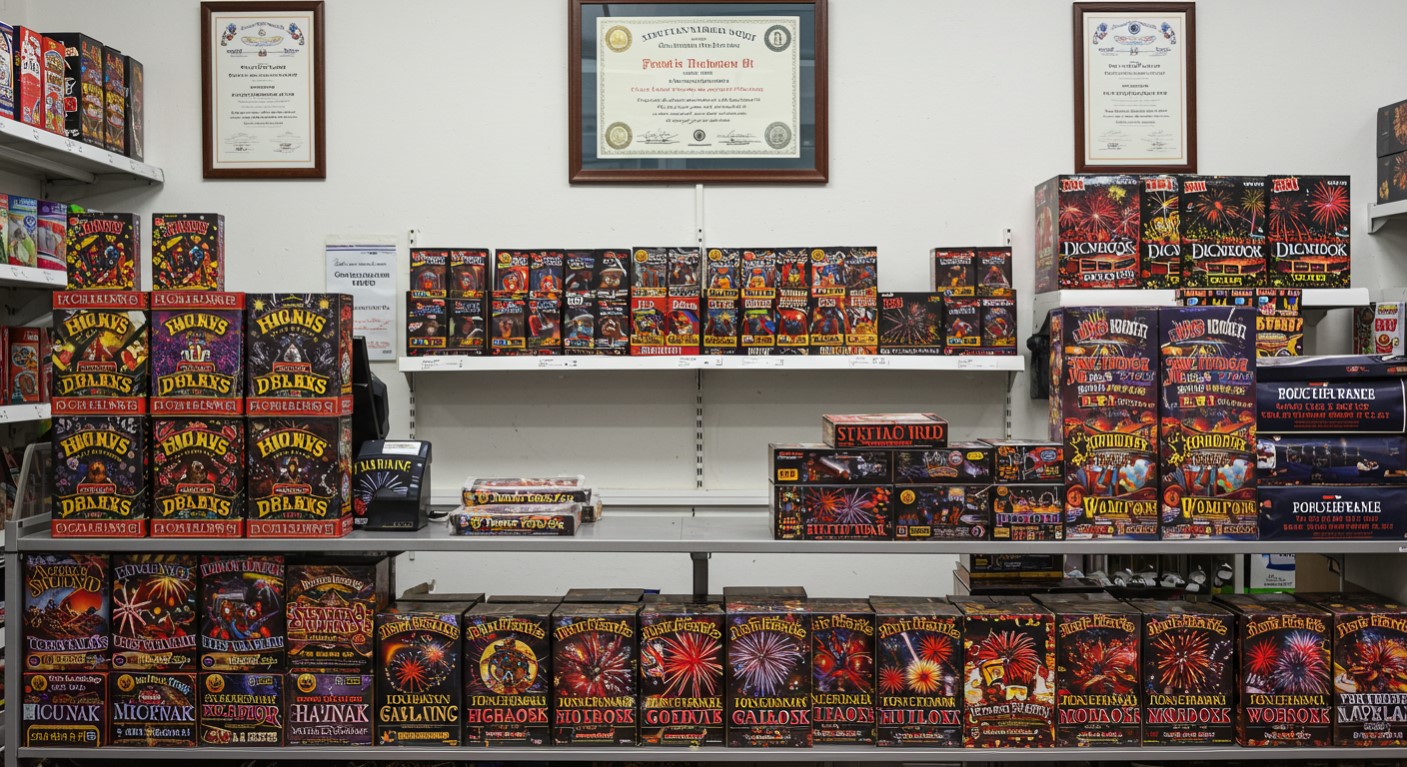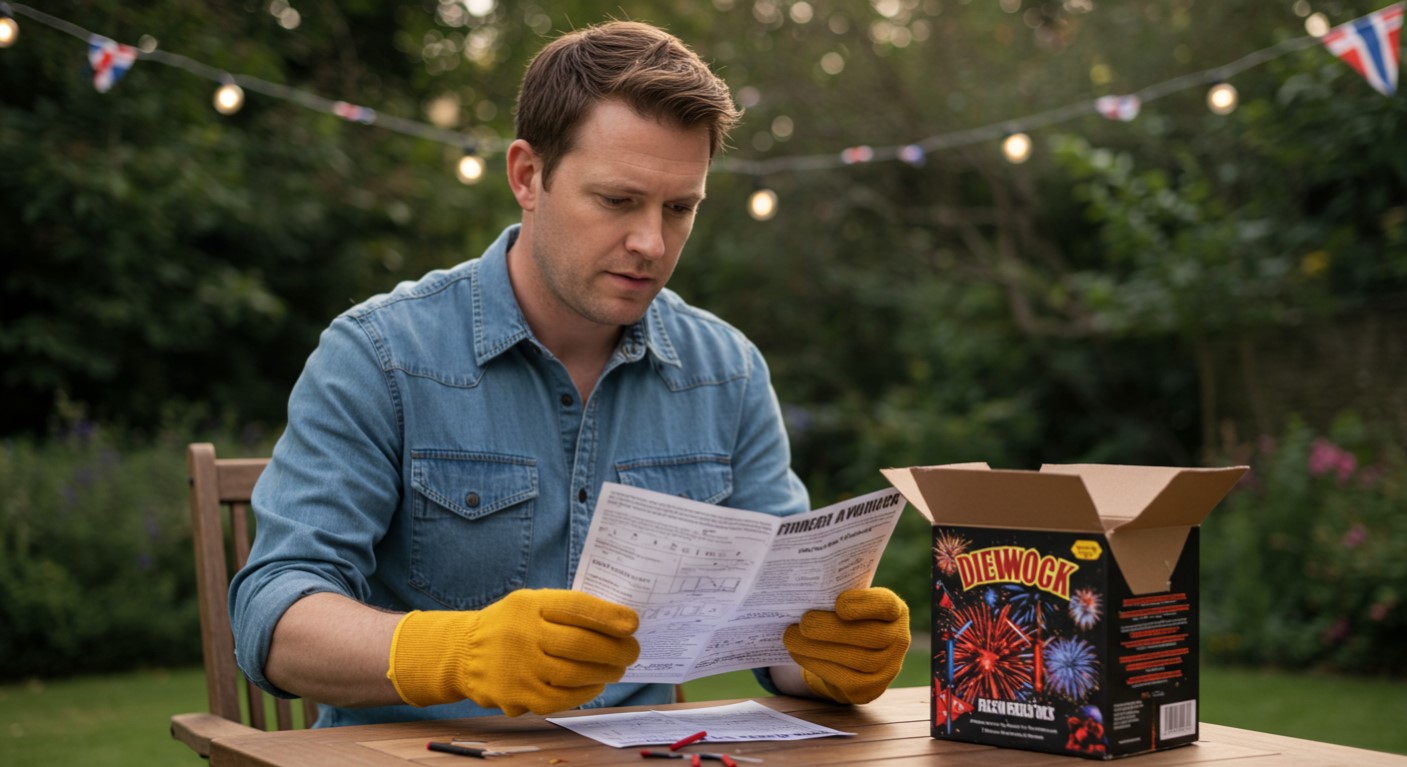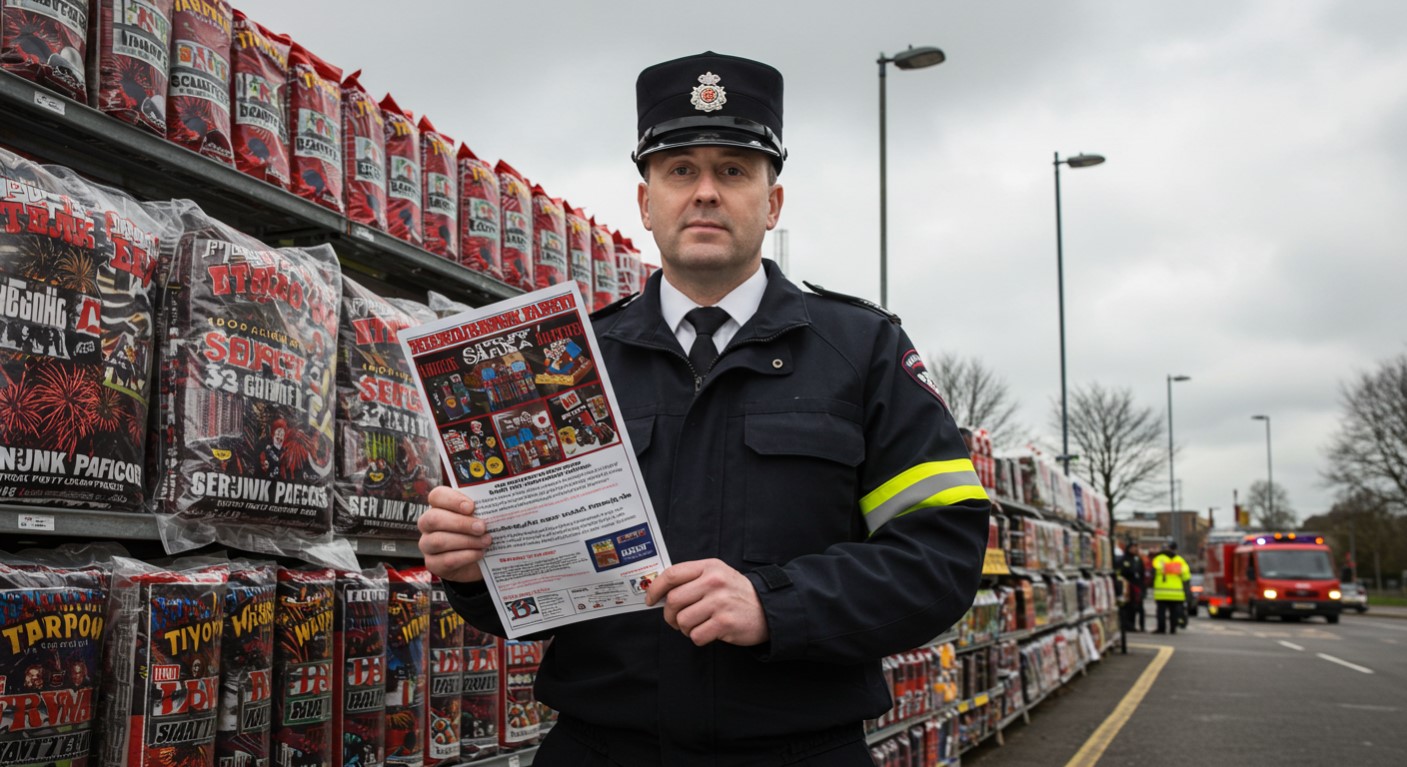Comprehensive Guide to Fireworks Law in England
Fireworks have long captivated the human imagination. From their aesthetic allure to their symbolic significance, they have become an integral part of numerous celebrations, including New Year’s Eve, Bonfire Night, and various cultural festivals like Diwali and Chinese New Year.
Yet, while fireworks bring joy and excitement, they also pose risks of injury and disturbance, drawing the attention of legislators and necessitating legal frameworks to regulate their use.
In England, a set of comprehensive laws govern everything from the sale and possession of fireworks to their appropriate use and storage. The aim is to strike a delicate balance between the desire for spectacle and the imperative for public safety.
This guide is designed to be a comprehensive resource for understanding the laws surrounding fireworks in England. It offers a deep dive into the statutory provisions, regulations, and guidelines that individuals, retailers, and event organisers need to be aware of.
As we navigate through the intricate landscape of fireworks law in England, we will explore key points such as age restrictions, types and categories of fireworks, timing and noise limitations, and the necessary licences and permits for public displays.
This article also aims to serve as a cautionary guide, outlining the legal repercussions that can result from non-compliance with these laws.
By familiarising yourself with the legalities of Firework Law in England, you can ensure not only a spectacular but also a lawful and safe experience for all involved.
The Fireworks Regulations 2004: A Detailed Overview

The Fireworks Regulations 2004 serve as the cornerstone of firework-related laws in England. Implemented as a statutory instrument, this legislative framework was established to ensure public safety, reduce anti-social behaviour, and mitigate environmental impact caused by fireworks.
It outlines a plethora of rules that govern various aspects of firework usage, such as the sale, possession, and setting off of fireworks.
Under this legislation, both consumers and retailers are subject to specific restrictions and obligations. For instance, retailers need to register or obtain a license to sell fireworks, depending on the time of year and the quantity they intend to sell.
Importantly, there are controls on the types of fireworks that may be sold to the general public. Prohibited fireworks include aerial shells, maroons, and bangers.
Moreover, the Fireworks Regulations 2004 are instrumental in establishing the timings during which fireworks can be sold. Typically, fireworks are available for purchase during specific periods surrounding celebratory events such as Bonfire Night and New Year’s Eve.
However, licensed suppliers can offer fireworks year-round, catering to the needs of professional displays and events.
Penalties for non-compliance are severe. Individuals who fail to adhere to these regulations may face fines of up to £5,000 or six months’ imprisonment. Businesses may also be subject to additional penalties
Firework Laws: Age Restrictions
One of the most critical elements of the Fireworks Regulations 2004 is the imposition of age restrictions on the purchase and possession of fireworks. In England, it is categorically illegal to sell fireworks to anyone below the age of 18.
This provision aims to mitigate the risks associated with inexperienced handling, which could lead to accidents or misuse.
Retailers bear a significant responsibility in enforcing this age limit. They are required to request and scrutinise valid identification documents such as a passport or a driver’s license before completing the sale.
Failing to do so can result in substantial penalties, including fines and even the revocation of their license to sell fireworks.
But the responsibility doesn’t end at the point of sale. It is also illegal for minors under the age of 18 to possess fireworks in public places. This provision is enforced rigorously by law enforcement agencies, especially during festive seasons when fireworks are in high demand.
Authorities conduct random checks and patrols to ensure compliance, and minors found in possession of fireworks can face legal repercussions, including fines and possible participation in youth rehabilitation programmes.
These age restrictions serve a dual purpose: they not only aim to reduce the potential for misuse but also strive to educate the public about the inherent risks associated with fireworks.
Public awareness campaigns often accompany these legal provisions to instil a sense of responsibility across age groups.
Types of Fireworks and Categories: An In-Depth Look

Fireworks come in a variety of forms, each with its unique attributes, safety considerations, and usage guidelines. In England, fireworks are classified into four distinct categories under the Fireworks Regulations 2004, and each category has specific stipulations regarding its sale, use, and handling.
Category 1: Indoor Fireworks
These are low-hazard and low-noise fireworks designed for use in confined spaces such as homes. Examples include sparklers and small fountains. While generally considered to be the safest category, indoor fireworks still require careful handling to avoid accidents like burns or fires.
Category 2: Garden Fireworks
Also known as consumer fireworks, these are designed for private use in small outdoor spaces, including gardens. They have a minimum safety distance, often between 5 and 8 meters, and generally include fireworks like small rockets, fountains, and Roman candles. Their noise levels and explosive power are moderate, making them suitable for residential areas.
Category 3: Display Fireworks
These are larger fireworks intended for open spaces and should be set off at a minimum safety distance of 25 meters. Common examples include aerial shells and larger rockets. Category 3 fireworks are often used in organised displays and events, and due to their increased power and noise levels, they usually require a permit or license for use.
Category 4: Professional Display Fireworks
Reserved exclusively for trained professionals, these are high-hazard fireworks that are not available to the general public. They are typically used in large-scale public events and require stringent safety measures,
Timing and Noise Restrictions: Navigating the Limits
In England, timing and noise restrictions are implemented to balance the enjoyment of fireworks with the need to minimise disturbance and ensure public safety. The Fireworks Regulations 2004, along with various local bylaws, provide specific guidelines that individuals, retailers, and event organisers must observe.
Timing Restrictions
The law generally permits fireworks to be set off between 7 a.m. and 11 p.m. However, there are notable exceptions for particular festivities and occasions, acknowledging cultural and celebratory practices:
- Bonfire Night: Until midnight
- New Year’s Eve: Until 1 a.m. on New Year’s Day
- Chinese New Year: Until 1 a.m. on the following day
- Diwali: Until 1 a.m. on the following day
These extensions are not arbitrary but designed to accommodate traditional celebrations while still considering the well-being of the community.
Noise Restrictions
Noise pollution is a significant concern when it comes to fireworks, both in terms of public nuisance and potential harm to animals and vulnerable individuals. In England, fireworks exceeding a noise level of 120 decibels are strictly prohibited for consumer use.
This restriction primarily affects Categories 3 and 4 fireworks, which are louder and more powerful. Retailers are responsible for ensuring that the fireworks they sell comply with this regulation, and violations can result in severe penalties, including fines and imprisonment.
Furthermore, some local councils may have additional noise restrictions or require a specific permit for displays expected to exceed a certain decibel level. Hence, it’s essential to consult local bylaws and obtain any necessary permits to ensure full compliance with both national and local regulations.
Licences, Permits, and Premises: Understanding the Regulatory Framework

The regulatory labyrinth surrounding the use of fireworks in England is not limited to categories and age restrictions; it extends into the domain of licences and permits, as well as the types of premises where fireworks can be stored or used.
These elements are crucial for both retailers and individuals planning firework displays, and understanding them is essential for lawful and safe celebrations.
Licences for Retailers
Retailers who wish to sell fireworks are subject to stringent regulations. To begin with, a registration or a licence is mandatory for selling fireworks. There are two primary types of licences:
- Seasonal Licence: Allows the sale of fireworks during specific times of the year, typically surrounding major celebrations like Bonfire Night, New Year’s Eve, Diwali, and Chinese New Year.
- Year-round Licence: Permits the sale of fireworks throughout the entire year, generally aimed at serving professional events and organisers.
Both licences come with a set of criteria that must be met, including adequate storage facilities that comply with safety regulations and regular inspections.
Permits for Public Displays
For public events and displays, organisers must obtain a special permit or licence, generally provided by the local council. The application process often includes an assessment of the event’s safety plans, including risk assessments, first aid provisions, and emergency evacuation procedures.
Compliance with local bylaws, such as noise restrictions, is also a common requirement.
Premises for Firework Use
The use of fireworks is confined to specific types of premises defined by their safety measures and distance from populated areas. For example, Category 2 fireworks may only be used in private gardens, whereas Category 3 fireworks require a larger open space with a minimum safety distance of 25 meters.
Category 4 fireworks, being the most potent, are generally restricted to professional events held in expansive, isolated areas.
Adherence to these regulations is crucial for ensuring both public safety and legal compliance. Failure to obtain the necessary licences or permits, or misuse of fireworks on inappropriate premises, can result in legal repercussions including fines, imprisonment, or both.
Safety Measures: More Than Just Guidelines

While legal regulations are crucial for maintaining a framework for the responsible use of fireworks, individual and collective safety measures form the bedrock of public well-being. Adhering to safety guidelines is not merely an option but a civic responsibility that carries the weight of legal implications for non-compliance.
Personal Safety
Personal safety starts with the basics, such as reading the instructions provided with each firework. These instructions often contain vital information regarding ignition methods, safety distances, and the amount of time one should wait before approaching a firework that appears to be a ‘dud‘.
Protective eyewear and gloves are also recommended when setting off fireworks to minimise the risk of burns or eye injuries.
Crowd Management
When it comes to public displays or events, crowd management is a critical safety measure. Barricades and clearly marked safety zones should be established to keep spectators at a safe distance from the firing area. Adequate signage and on-site stewards can guide the public and ensure that safety procedures are followed.
Storage and Transport
Fireworks are combustible items and, as such, should be stored in a cool, dry place away from any flammable materials. Retailers are obliged to adhere to strict storage regulations, which include maintaining a detailed inventory and ensuring secure storage facilities that are compliant with fire safety standards.
Emergency Preparedness
Being prepared for emergencies is another vital aspect of safety measures. First aid kits should be readily available, and individuals involved in setting off the fireworks should be familiar with basic first aid procedures for burns. At public events, medical personnel should be on standby, and evacuation plans must be clearly communicated to attendees.
Environmental Considerations
Lastly, responsible firework usage also entails a consideration for the environment. Many areas are sensitive to noise and light pollution, not to mention the potential for litter from firework debris. Organisers and individuals are encouraged to choose fireworks that have a minimal environmental impact and to clean up thoroughly after any event.
Failure to adhere to safety measures can not only put lives at risk but also result in severe legal consequences, including fines and imprisonment. Therefore, understanding and implementing safety measures is an imperative that should not be overlooked.
Penalties: The Cost of Non-Compliance
Failure to adhere to the Fireworks Regulations 2004 and other associated laws carries with it severe consequences, underscoring the government’s commitment to public safety and the responsible use of fireworks.
The penalties vary in severity depending on the nature of the offence and can apply to both individual consumers and commercial entities like retailers or event organisers.
Penalties for Individuals
For individuals, the fines for violations can be substantial. For example, selling fireworks to minors or possessing fireworks as a minor can result in a fine of up to £5,000. Illegal use of fireworks, such as setting them off in prohibited areas or during restricted hours, could lead to a similar fine or even imprisonment for up to six months.
Multiple offences can attract cumulative penalties, escalating the financial and legal ramifications.
Penalties for Retailers
Retailers face stringent penalties for non-compliance, which can extend far beyond financial repercussions. Selling fireworks without a proper licence can lead to the revocation of their business licence, effectively shutting down operations.
Furthermore, failure to adhere to storage regulations or the sale of illegal fireworks can result in heavy fines and could trigger criminal proceedings. Repeat violations may result in long-term bans from selling fireworks, causing significant business disruptions.
Legal Proceedings
In severe cases, violations can result in criminal charges that necessitate court proceedings. Such cases can have lasting implications, including a criminal record that could affect future employment opportunities and social standing. Hence, the weight of legal consequences serves as a strong deterrent against flouting firework laws.
Alternative Measures
Some jurisdictions offer alternatives to criminal proceedings, such as community service, educational courses on firework safety, or participation in youth rehabilitation programmes for minors caught in possession of fireworks. However, these are generally reserved for first-time offenders and are not a guarantee against more severe penalties for repeated violations.
The rigidity of penalties aims to instil a sense of responsibility and caution when handling fireworks, thereby contributing to the broader objective of public safety and well-being.
Firework Law in England: The Imperative of Responsible Firework Use

The complexities of firework laws in England are a reflection of the multi-faceted issues surrounding their use, spanning from public safety and environmental concerns to cultural celebrations. The Fireworks Regulations 2004, along with various local bylaws, form a comprehensive framework designed to strike a balance between enabling the enjoyment of fireworks and safeguarding the public.
Understanding this legal framework is not just an obligation but a critical aspect of responsible citizenship. From age restrictions to licences and permits, each component of the law serves a distinct yet interconnected purpose.
Negligence in any one area, be it the illegal sale to minors or the failure to adhere to safety measures, can lead to dire consequences. Penalties, both financial and legal, act as strong deterrents but also serve as a constant reminder of the inherent risks associated with fireworks.
Equally essential is the observance of safety measures. The guidelines in place are not merely recommendations but mandatory steps aimed at minimizing the potential for accidents or disturbances. As individuals, retailers, or event organisers, the onus of ensuring safe and lawful use of fireworks rests squarely on our shoulders.
Notice: Informational Content Disclaimer
The content provided on this website, including articles, blog posts, and other informational materials, is intended for general informational purposes only. It is not intended as, and should not be considered, legal advice.
Visitors to this website should be aware that the information presented here is not a substitute for seeking legal advice from a qualified solicitor or legal professional. Each individual's legal situation is unique, and the information provided may not be applicable to specific circumstances.
If you require legal advice or have specific legal questions, we encourage you to contact us directly. Our experienced team of solicitors is here to assist you with your legal needs and provide tailored advice to address your concerns.
Please be advised that any communication through this website, including the use of contact forms or email, does not create a solicitor-client relationship. Confidential or time-sensitive information should not be sent through this website. To establish a solicitor-client relationship and discuss your legal matters in detail, please contact us for a consultation.
We strive to provide accurate and up-to-date information, but we make no representations or warranties regarding the accuracy, completeness, or suitability of the information contained on this website. We shall not be liable for any reliance placed on the information provided herein.
Thank you for visiting our website. We look forward to the opportunity to assist you with your legal needs.





